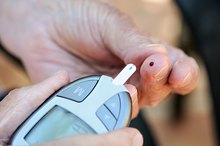How to Counteract Feeling Tired After You Donate Plasma
When you donate plasma, the blood bank uses a procedure called plasmapheresis to separate the thin, straw-colored plasma from your blood. All your other blood components are returned into your body, along with a sterile saline solution that helps your body replace the donated plasma, usually within 24 hours. However, many donors report feeling rundown and fatigued after plasmapheresis.
Stay hydrated. Drink lots of water or other noncaffeinated liquids the day before, of and after your plasma donation. Dehydration is one of the most common causes of post-donation fatigue. If you feel tired, try drinking more water.
How to Reduce Arm Pain After Donating Plasma
Learn More
Avoid alcoholic beverages the day of and after your donation.
Eat a balanced meal two to three hours before you donate. Make sure that the meal is heavy in protein and iron and light on sugar. This will give your body much-needed nutrients in preparation for the donation.
The Best Way to Replace Protein After Plasma Donation
Learn More
Eat a snack after the donation to raise your blood sugar, renew your energy levels and counteract any lightheadedness. Most blood-donation centers will offer you cookies, pretzels or bread sticks along with juice after donation. This will make you feel better in the short term. However, bring some nuts, cheese or another protein-filled snack which will keep your blood sugar levels even in the longer term.
Place an icepack or a wet washcloth on the back of your neck after donating if you feel faint.
Take it easy the rest of the day after donation. This doesn’t mean that you should take to bed, but avoid heavy lifting or overexertion for about 24 hours after you donate.
Tips
If you feel tired after donation, it can be tempting to drink a caffeinated beverage. Avoid caffeine after plasma donation—it will dehydrate you more and ultimately make you feel more fatigued.
Related Articles
References
Writer Bio
A writer and professional lab assistant based in Seattle, Kate Bruscke has been writing professionally about health care and technology since 1998. Her freelance clients include "The Seattle Times," KGB.com, Reading Local: Seattle, Nordstrom and MSN/Microsoft. Bruscke holds a Master of Fine Arts from The School of the Art Institute of Chicago.









